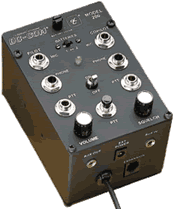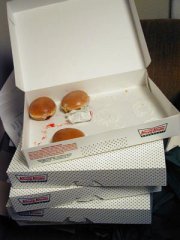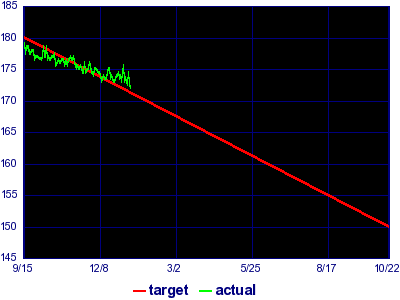The first several months of 1986 were a low point for me. I was suspended from college for low grades and had moved into a squalid tenement-style apartment with a roommate named Paul. I felt lonely, with my friends continuing to attend classes. Often I had to listen to Paul having sex with his girlfriend in the next room.
Things didn’t stay so bleak for long. Thanks to a tip from my friend Mike, I got a programming job at the University of Pittsburgh, and took a couple of classes there, too. I continued to see my friends from time to time. I was busy looking into other schools, thinking that I’d prefer one with a creative writing program rather than the computer science program that had drawn me to CMU. And my friend Julie, whose relationship with her boyfriend had grown strained, took up with me.
Reefer madness
When my college friends George and Merle rented a house together in the Shadyside section of Pittsburgh, I went to their housewarming party. Because I was a special friend — I’d visited George often when he was hospitalized the previous winter — they took me aside to show me their secret pot-growing closet. Inside was a veritable jungle of pot plants. The closet was lined with tinfoil, reflecting the blaze of numerous grow-lights. I was duly impressed. George volunteered to give me one of the smaller plants, which he concealed inside a green garbage bag for my walk home.
There’d been plenty of pot-smoking at the party, but I’d only had a couple of tokes, never having been very much into drinking or drugs like some of my friends. Nevertheless, I must have gotten a pretty serious contact high, because as I walked home in the wintry dark carrying that garbage bag, I kept having the same strange experience: I’d be at the beginning of a block, and suddenly I’d be at the end of the block, with no memory of having walked the intervening distance.
That didn’t change the squalor in which I was living. I had a tiny closet of a bedroom that was mostly taken up by the bed. In a corner of the room was a growing pile of dirty laundry. The only other things in the room were a reading lamp and a small marijuana plant on the windowsill, a gift from my friends George and Merle. It never flowered.
I was almost never in my apartment except to sleep and shower. The laundry pile grew and grew, because there were no laundry facilities nearby, and even if there had been, I was on the third floor of a walkup, and all those stairs made an effective barrier. I knew I should get to a laundromat before things got totally out of hand, but before I knew it, they had.
There came a point — it took surprisingly long — where all my clothes were dirty. When I dressed in the morning, I picked the least dirty clothes out of the laundry pile. I think I may have washed some socks and underwear by hand in the bathroom sink from time to time, but that was it.
Finally I’d had enough of living that way. It was time to have some clean clothes. One way or another, I had to do laundry.
I waited until midnight one weeknight, by which time I figured students at the Morewood Gardens dorm building would be finished using the laundry room there and I could monopolize as many machines as I needed for as long as necessary. I had assembled a pile of one-dollar bills. These I planned to feed into the change machine in the dorm’s video game room in order to get quarters to run the laundry machines.
I hauled out my giant denim duffel bag and started stuffing clothes into it. And stuffing. And stuffing. You never saw clothes packed so densely. I was determined to fit everything into that one bag, because if I couldn’t, it meant finding another good bag (which I didn’t have) or making two trips, and I was hellbent on getting all the laundry done in one shot as quickly as possible.
I managed to fit everything in the bag, but it was so tightly packed I literally couldn’t lift it. I couldn’t even dent it. Literally.
I called for a cab, then dragged the duffel bag across the floor of the apartment, out the door, and to the top of the stairs, which descended straight down to street level with no turns or landings.
I gave a shove, and down went the clothes.
When the cab came, I wrestled the bag into the back seat with me with great difficulty. I rode the three long blocks to Morewood Gardens, paid the driver, and for the next twenty minutes manhandled my clothes to the dorm building’s basement.
With the duffel bag in the laundry room, I walked upstairs to the game room to get my first batch of quarters, about three dollars’ worth. I used some of that to buy a box of detergent powder from a vending dispenser. I put in more quarters to buy dryer sheets, but the vending machine jammed! I couldn’t get my quarters back either. Oh well, I thought. Little did I know I should have given up right then and there.
There were three washing machines, and I loaded them up. At once I saw just how long I’d be there. The duffel bag seemed no less full after removing three washer-loads of clothes!
I sprinkled some detergent into the machines, fed in my quarters, and started them going. Then I went upstairs to play some video games. After twenty or thirty minutes, I stopped by the change machine again, having used up the last of my quarters — but it was empty! Cursing, I crossed the street to the University Computing Center, where there was another change machine. But now it was after 1am and the UCC building was locked. There was yet another change machine in Skibo, the student center, but I knew that building would be locked too. Finally, I remembered a vending machine in one of the academic buildings, Baker Hall, and the change machine that stood next to it. Baker Hall was clear on the other side of campus, and I sprinted over, eager to get the next load of laundry started so that maybe I could finish before sunrise.
I found the change machine, fed in two dollar bills, and then got the dreaded orange light — “machine empty.” Eight more quarters was not going to get the job done! But at fifty cents a cycle, it was enough to start three more washer loads and one dryer load while I hunted for still more quarters. I ran back to Morewood Gardens and flipped up the washing machine lids to remove the clothes, and this is what I saw:
- In one machine, although the cycle had finished, the dirty water hadn’t drained.
- In another machine, although the cycle had finished, there were soggy, sticky, undissolved clumps of laundry detergent clinging to my clothes.
- In the third machine, my clothes were clean and damp.
For the next five minutes or so I suffered a major frustration attack, swearing, banging on machine lids, and on the verge of tears. Then I pulled myself together. I moved the clean clothes to a dryer and started it running. Then I moved the clothes from the dirty, undrained machine to the empty machine and ran that. Finally I re-ran the machine where the detergent hadn’t dissolved.
Now what? There seemed to be only one thing to do: walk two long blocks down Forbes Avenue to the Mini-Mart and beg them for quarters. While there I could also pick up some liquid laundry detergent, which wouldn’t fail to dissolve like the powder I’d bought; and some dryer sheets.
The Mini-Mart had just closed. It was a few minutes past two.
I walked several blocks farther into Oakland, where there was a 7-11. I asked for twenty dollars in quarters, all prepared to tell my tale of woe, but the look on my face must have done the job, because the cashier unhesitatingly complied. I picked up some other needs — snack food, a magazine or two — paid, and left.
On the walk into Oakland, I hadn’t noticed the cold, being overheated from frustration and anxiety and running. But I had spent several therapeutic minutes in the 7-11 and as I plodded back to Morewood Gardens my sweaty skin made me freeze.
The load in the dryer wasn’t dry. The load with the undissolved detergent still had undissolved detergent. The load in the good machine was clean. I moved that load to a dryer and ran it; I re-ran the not-yet-dry dryer load; and I moved the undissolved load to the good machine and ran it for a third time.
From that point on things proceeded slowly but without much further incident. I could use liquid detergent in the machine that didn’t dissolve powder, and the loads came out fine. I discovered after a few loads that the dryers barely did anything, so I stopped using them. I’d brought hangers, but the wet clothes were too heavy and difficult to hang, so I crammed them back into the duffel bag. I’d deal with them when I got home, if I ever did.
With just two machines going at a time, it wasn’t until after 9am that I finally was back in my apartment with my even-heavier duffel bag of soggy clothes. I have no memory of getting the duffel bag back up the stairs. The human brain has an amazing capacity to block memories of pain.
I hung up my clothes, passed out, woke up at night, and got drunk with my friends.
 In the months preceding my Bar Mitzvah I became determined that, when the day arrived, my skin should be absolutely clear and blemish-free, despite then being in the throes of pubescent acne. To achieve this goal I swore off chocolate and deep-fried food cold-turkey. For something like two or three months I upheld this prohibition (except for one time when I thoughtlessly accepted a few proffered potato chips, then agonized over them for the next several days). The result: it worked! On the day of my Bar Mitzvah my skin positively glowed.
In the months preceding my Bar Mitzvah I became determined that, when the day arrived, my skin should be absolutely clear and blemish-free, despite then being in the throes of pubescent acne. To achieve this goal I swore off chocolate and deep-fried food cold-turkey. For something like two or three months I upheld this prohibition (except for one time when I thoughtlessly accepted a few proffered potato chips, then agonized over them for the next several days). The result: it worked! On the day of my Bar Mitzvah my skin positively glowed. Flustered, I explained to the instructor that this was my first time using a two-person intercom with the radio stack. (In small planes, very often the intercom is a separate little box that the pilot owns. Two headsets plug into it, then the box — which usually ends up wedged between the front seats or knocking around loose on the floor of the cabin — plugs into the radio. Before the checkride, I flew solo with no need for an intercom — my headset plugged right into the radio — and before flying solo, my instructor would always set up his intercom for us to use.) The examiner put me at ease, saying, “Anyone could have forgotten to plug in the intercom. It’s not on the checklist. A poor student would have given up and started taxiing without clearance. You did what you were supposed to do, even if it took a little longer.”
Flustered, I explained to the instructor that this was my first time using a two-person intercom with the radio stack. (In small planes, very often the intercom is a separate little box that the pilot owns. Two headsets plug into it, then the box — which usually ends up wedged between the front seats or knocking around loose on the floor of the cabin — plugs into the radio. Before the checkride, I flew solo with no need for an intercom — my headset plugged right into the radio — and before flying solo, my instructor would always set up his intercom for us to use.) The examiner put me at ease, saying, “Anyone could have forgotten to plug in the intercom. It’s not on the checklist. A poor student would have given up and started taxiing without clearance. You did what you were supposed to do, even if it took a little longer.” …where I found aluminum catering trays full of white rice and Chinese vegetables, left over from someone’s lunch meeting. I heaped some on a plate and headed for the stairwell back to my desk. On the way there I encountered my coworker Cid, who asked me, “Do you eat meat?” “
…where I found aluminum catering trays full of white rice and Chinese vegetables, left over from someone’s lunch meeting. I heaped some on a plate and headed for the stairwell back to my desk. On the way there I encountered my coworker Cid, who asked me, “Do you eat meat?” “
 Fuel efficiency is my main criterion. I’m intrigued by the Toyota Prius — I’ve driven one and liked it — but the car I’m really after is the new
Fuel efficiency is my main criterion. I’m intrigued by the Toyota Prius — I’ve driven one and liked it — but the car I’m really after is the new 